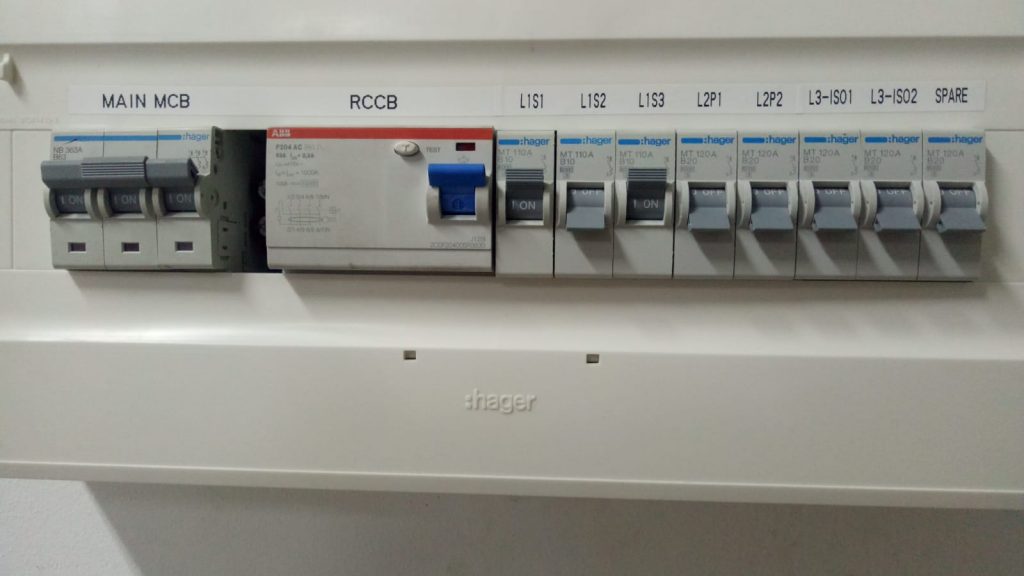
One of the most common results of poorly managed electric writing is the short circuit — which typically happens when a live bare wire touches a neutral wire or object that it’s not supposed to.
Short circuits at home occur for any number of reasons. Usually, short circuits happen because there’s broken insulation, improper wiring, and overloading.
Short circuits can lead to electric shock and even house fires. They can also lead to broken appliances.
House owners should take the prospect of short circuits seriously because of this. A simple short circuit can cause a lot of damage — some short circuits have even burned down entire homes!
At any rate, we’re here to give some tips on how to avoid short circuits at home. All you need to do is follow these steps:
- Check Outlets Before Use
Faulty wiring is the number-one cause of a short circuit, so it’s ideal to check outlets regularly. If your outlet is more than 10 years old, we highly recommend that you have it replaced because there’s a huge chance it can cause short circuits.
We also don’t recommend using an outlet with burn marks or burning smells. You should also look out if there’s a buzzing or popping sound coming from your outlet.
- Unplug Electronics
Unplugging unused electronics and appliances is perhaps the best way to avoid short circuits. Remember, an appliance on standby still consumes and uses electricity, which can lead to short circuit because of overloading.
One way of knowing that an appliance is still using electricity is if the power light is still on. Remember that if there’s light, it’s still using electricity.
- Avoid Using Appliances During Storms
Short circuits caused by lightning strikes are definitely more dangerous because they involve an overwhelming amount of electricity. That can result in massive damage to anything plugged in… so try to avoid plugging in anything at such times!
Take note that you can’t just unplug something that’s already been damaged by an electrical surge of this type and then plug it back in and expect it to work, by the way. You need to get it fixed first, or you may make the situation worse.
For example, if you think your fridge shorted due to a lightning strike, don’t plug it back in “to test it”. It’s better to call a fridge repair to check on it first.
If you’re not doing anything important during storms, it’s best to let our appliances such as laptops, televisions, and fridges rest.
- Invest in Fuses
Fuses are must-have items for every household. You can depend on fuses to interrupt an overwhelming flow of electricity that goes above the capacity of an appliance or electronic device.
In case there’s a need to use appliances during risky times (such as when there’s a storm), then it’s best to use a fuse to avoid short circuits and damage.
- Call for Circuit Maintenance
It doesn’t hurt to spend a little bit of money on electrical and outlet maintenance if it means lower chances of short circuits at our home. It might cost a bit higher than expected if your house uses a lot of appliances, but we guarantee that you and your family will be much safer.
If you don’t have spare money for a circuit maintenance service, then you can do a basic maintenance check on your own. Check if the circuit breaker has any damage, cracks, burn marks, or loose fittings.
However, it’s still best to let an expert check your circuit breaker, wires, and outlets. Pros have a better idea of what to look out for — and are less likely to get into nasty electrical accidents.
An expert electrician can also tell you if you have other issues at home that are affecting your wiring.
For example, it’s fairly common for electricians to recommend a pest control service to homeowners with rodent problems. Why? Because rodents can actually chew the protective covering off wires.
This gives you an idea of how complex some types of electrical system maintenance can get. Still, it’s worth it when done right, because it keeps your power up and your home safe from disasters like electrical fires.
In any case, that wraps up our list of tips for how to prevent short circuits at home. Most of these are relatively easy to follow, so we urge you to observe them. And if you have questions, remember that you can always leave them for us in the comments!
HDB Registered Contractor
License Number: HB-09-5474D

